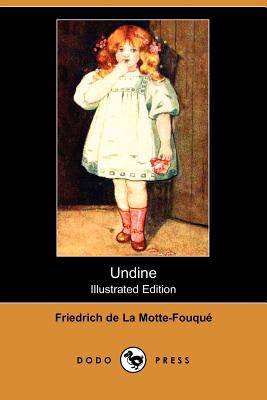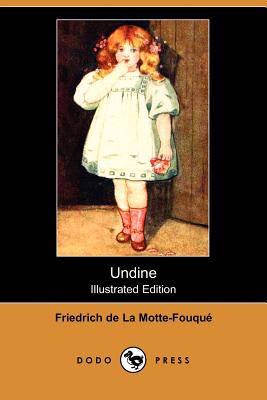
- Afhalen na 1 uur in een winkel met voorraad
- Gratis thuislevering in België vanaf € 30
- Ruim aanbod met 7 miljoen producten
- Afhalen na 1 uur in een winkel met voorraad
- Gratis thuislevering in België vanaf € 30
- Ruim aanbod met 7 miljoen producten
Zoeken
€ 9,95
+ 19 punten
Omschrijving
Friedrich Heinrich Karl de La Motte, Baron Fouqué (1777 - 1843), was a German writer of the romantic movement. He was born in Brandenburg. Although not originally intended for a military career, he ultimately gave up his university studies at Halle to join the army. The rest of his life was devoted mainly to literary pursuits. August Wilhelm Schlegel published Fouqué's first book, Dramatische Spiele von Pellegrin, in 1804. His next work, Romanzen vom Tal Ronceval (1805), showed more plainly his allegiance to the romantic leaders, and in the Historie vom edlen Ritter Galmy (1806) he versified a 16th century romance of medieval chivalry. Between 1810 and 1815, Fouqué's popularity was at its height; his works appealed exactly to the mood of the hour. The earliest of these are the best-Undine (1811) which is the only work by which Fouqué's memory still lives today. The book concerns Undine, a water spirit who marries a Knight named Huldebrand in order to gain a soul. It is an early German romance, which has been translated into English and other languages. The novel served as inspiration for two operas in the romantic style by Ernst Theodor Amadeus Hoffmann and Albert Lortzing, respectively.
Specificaties
Betrokkenen
- Auteur(s):
- Illustrator(s):
- Uitgeverij:
Inhoud
- Aantal bladzijden:
- 100
- Taal:
- Engels
Eigenschappen
- Productcode (EAN):
- 9781406525854
- Verschijningsdatum:
- 15/06/2007
- Uitvoering:
- Paperback
- Formaat:
- Trade paperback (VS)
- Afmetingen:
- 152 mm x 229 mm
- Gewicht:
- 158 g

Alleen bij Standaard Boekhandel
+ 19 punten op je klantenkaart van Standaard Boekhandel
Beoordelingen
We publiceren alleen reviews die voldoen aan de voorwaarden voor reviews. Bekijk onze voorwaarden voor reviews.











